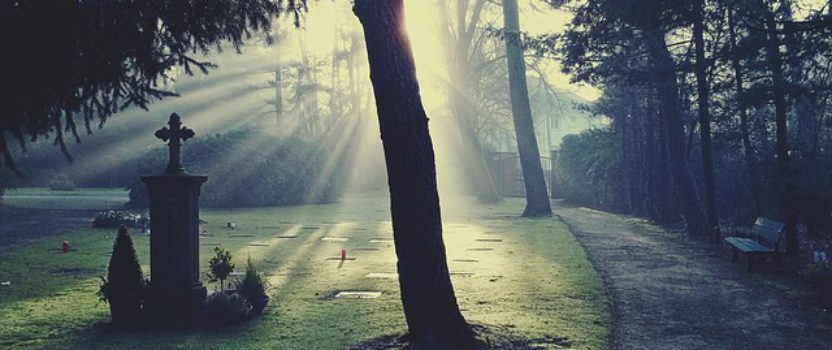Post 19 – Death, Climate Change & Other Reflections
Here I am over a day late writing this post. Part of the reason for my tardiness is that I had a funeral to attend of a colleague and neighbor, and so I will dedicate this post to JCK.
Back in the early nineties, when I first met this man, he was vegetarian and I assume he remained so until his death. Back then, we accepted his vegetarianism as one of the quirks of an unusual man. Nobody would have called him ‘mainstream’; to most of us who worked with him, he was like a remanent of the alternative, hippy movement of the sixties and seventies but he was much more than that, and he may not have even participated in the ‘Age of Aquarius’. JCK was a man of honor; he was hard-working, knowledgeable, caring, with a high attention to detail and he was, as a result, annoying at times and occasionally a figure of fun. It was some years before I asked him why he was a vegetarian. At the time, most people who were vegetarian chose to be so for reasons of animal ethics. The amazing Peter Singer and the Animal Liberation Movement had quite an impact. The answer I got to my question was not what I expected. I knew JCK was
finishing off a Master’s degree in environmental science from one of Australia’s most respected universities, but I had no idea that his studies were linked to his vegetarianism. JCK told me he didn’t eat land based meat because it was ‘too high up the food chain’. He told me that too much land and lower order protein was needed to create food for cattle, sheep and pigs and so he didn’t eat meats such as beef, lamb or pork. I remember being impressed with his argument and having a sense of understanding it but, as I think back, I wonder if my memory is playing tricks on me because I knew little or nothing about climate change then. Moving on from the issue of imperfect memories, JCK was of course correct. 
If we want to help mitigate climate change, then a vegetarian diet is one of the ways that we can individually make a difference. The estimates are that livestock account for 18% of emissions. This site, that I recently came across, has a nice footprint calculator about diet, that further makes the point about the relationship between emissions and what we eat (remember t CO2e means total carbon dioxide equivalent emissions). The following graphic is taken from that site.
Having talked about JCK’s vegetarianism I now want to reflect on why I didn’t heed the message that people such as he were living and, when asked, talking about. I honestly think that a lot of it was, and is, about our perception of what is ‘normal’. As much as we like being thought of as individual’s, we really want to fit in; to be like everyone else. It’s sort of interesting to have ‘quirky’ or different friends but our acknowledgement of them is from our mainstream position; we don’t actually want to follow them. I make these comments because I want a low carbon life to be mainstream; for it to be something that appeals to people; that it becomes a lifestyle to follow and so this blog is from the perspective of an ordinary person, living an ordinary life, dealing with ordinary issues and hoping that it becomes the new normal. JCK was ahead of the times in his own particular way.
I’ve mentioned in an earlier blog, an interesting little book called ‘How Bad Are Bananas?’ so, having just been to a funeral, I decided to have a look at the emissions associated with death. JCK’s funeral was as different as his life and was a testament to his values. He was buried in a small, quite old, poorly maintained, bush cemetery way down a series of dirt tracks that lead to nowhere; many of the graves are unmarked and only the caretaker would have much idea of who was buried where, or if indeed the disruptions to the ground represented burial plots or not. His casket was of thin, unfinished pine and the entire funeral was conducted at the graveside. There was only one formal floral arrangement which was of seasonal, native flowers. All the other floral tributes were small pieces of wattle, which is currently flowering, and which mourners brought with them. The day was dry and clear but cold, with a howling wind blowing. JCK’s funeral was big in terms of people attending and heartfelt respect but small in terms of ritual and time spent. It seemed to me to be a good funeral; a farewell that was consistent with the life of the man.
Now, on to ‘Bananas’. For those who might have read some of my previous posts, I am interested in measuring how much carbon we can emit and still live in a world that it not headed for catastrophe. One person’s answer to that question appears in a book called ‘How Bad Are Bananas’. In this book, we are told that, ultimately, we should be emitting no more than 3 tonnes of t CO2e per person per year. The book then has a lighthearted look at the various emissions generated by the more common activities of life. For death, first there is a tick because, to quote the author, ‘you have already done the most carbon friendly thing possible’ then there is another tick if you are buried in a simple coffin, in a poorly maintained cemetery and finally, there is a pass that allows you to ‘treat yourself on this one occasion to which ever method takes your fancy. This is the one time when it is too late to start worrying about your carbon footprint’.
Vale JCK.

